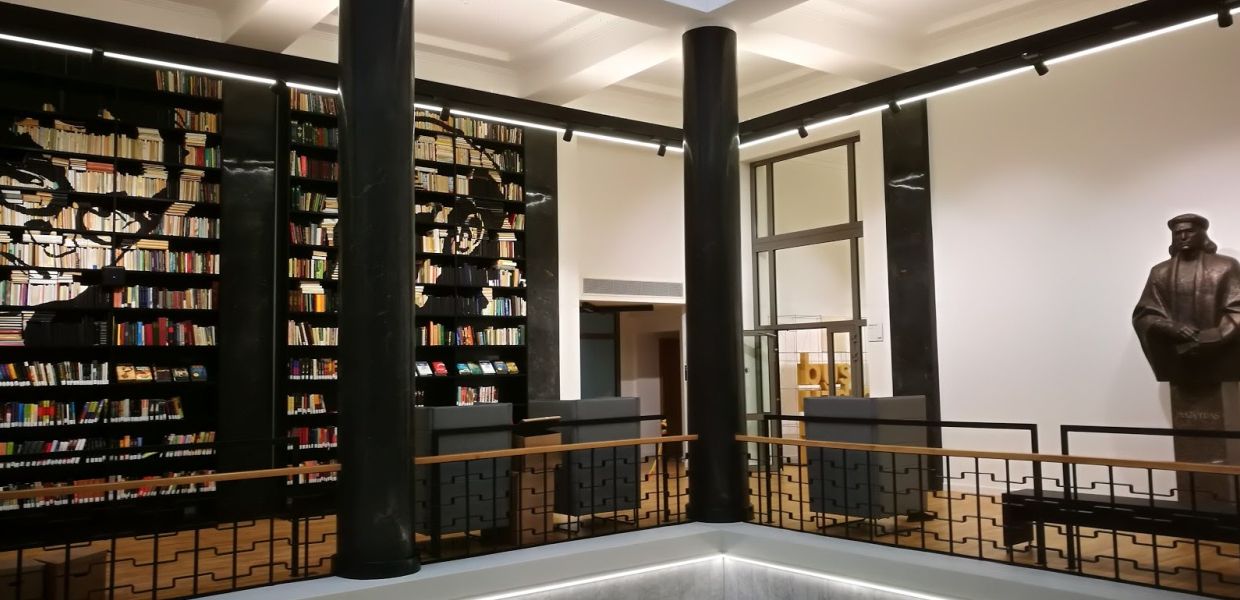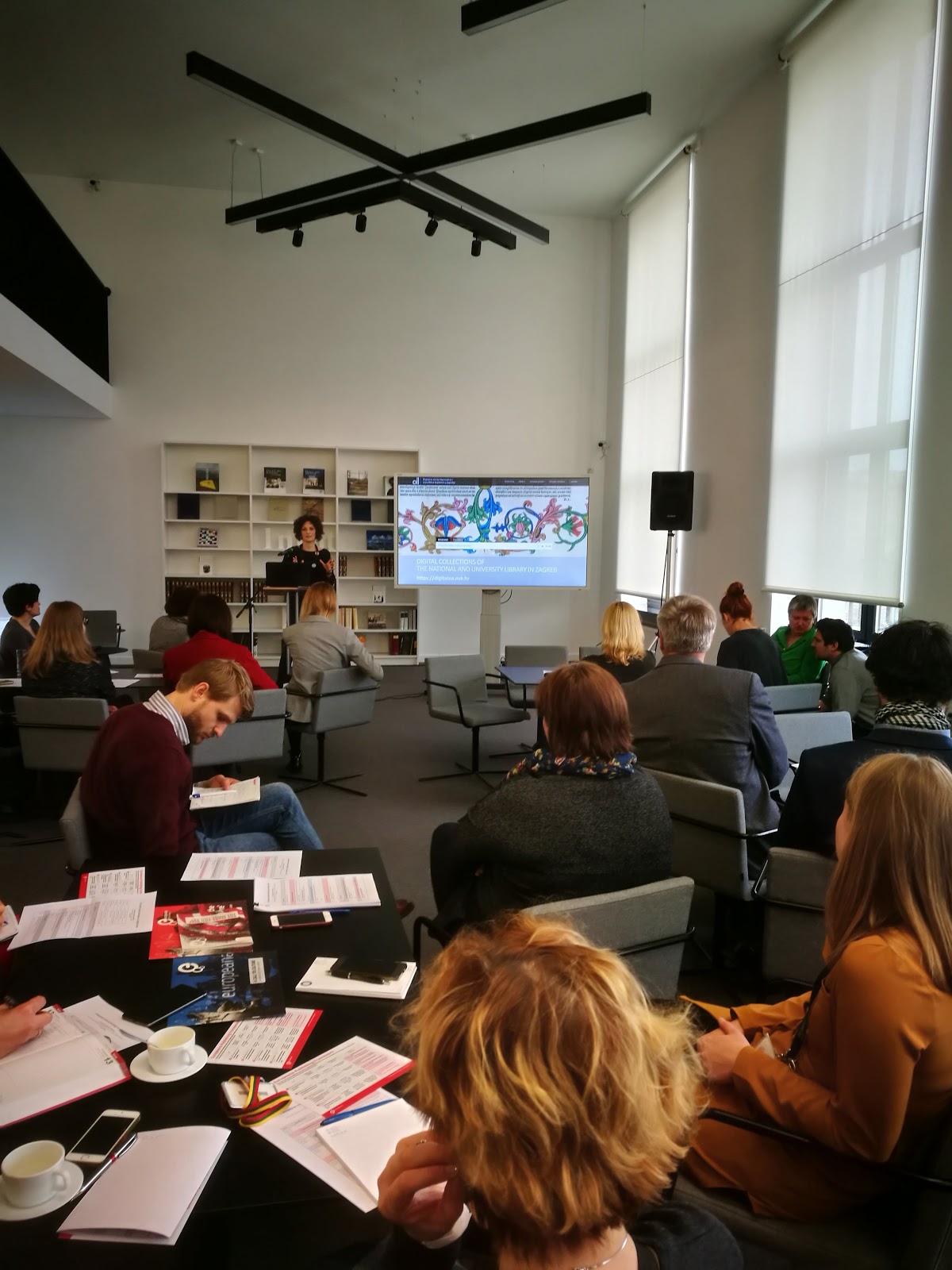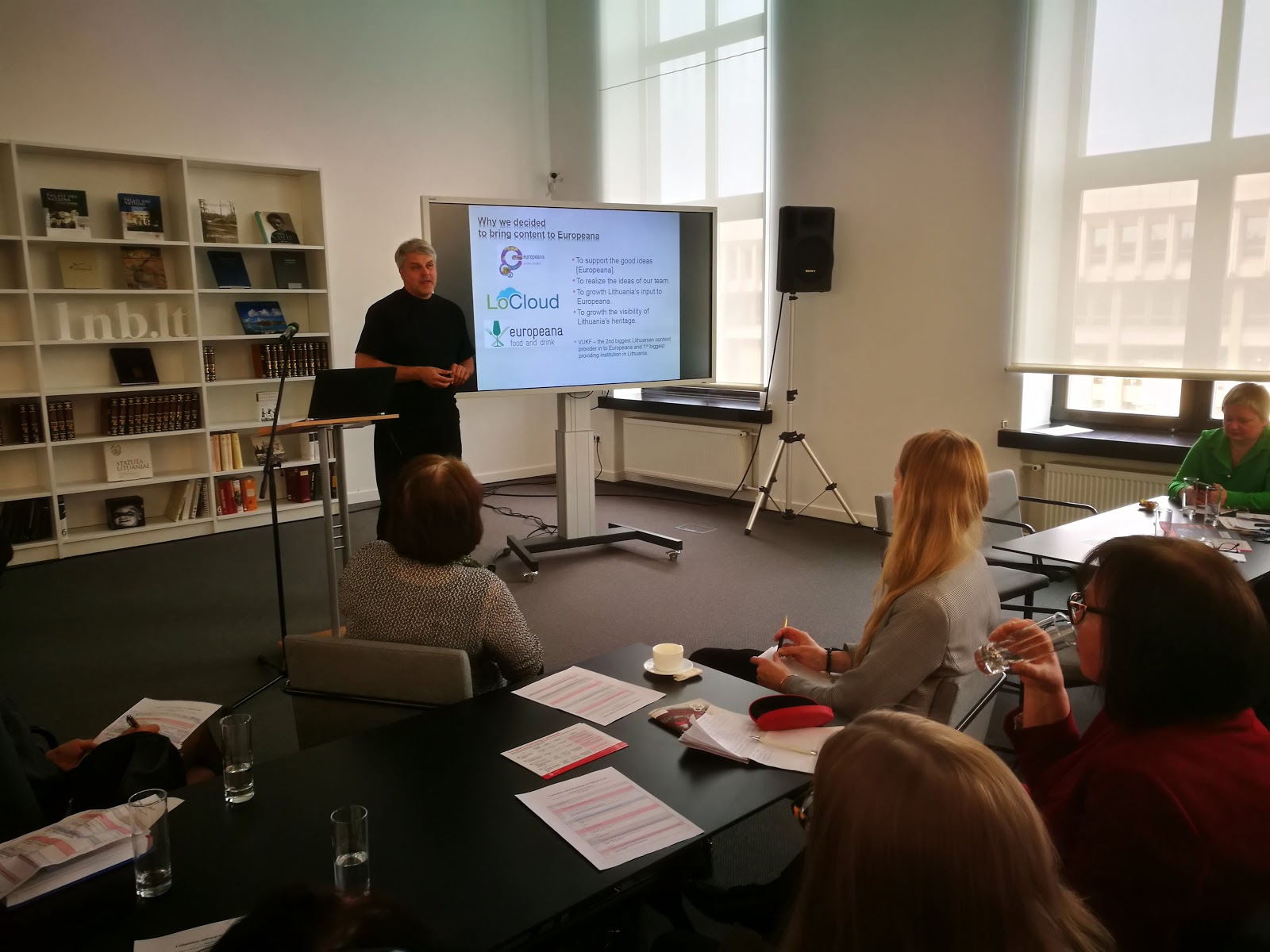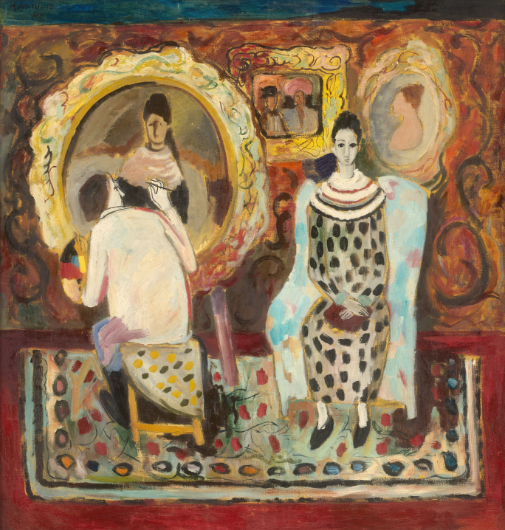Lithuanian cultural heritage in a digital world: a Europeana national workshop
On Wednesday 25 April 2018, the National Library of Lithuania hosted a Europeana national workshop in its spectacular renovated building.

- Title:
- The National Library of Lithuania
- Creator:
- Nicole McNeilly
- Date:
- April 2018
- Country:
- The Netherlands
- Copyright:
- CC BY-SA
Our setting was a beautiful room full of books about European arts and culture - highly appropriate for a workshop in which we showed the value of reaching a pan-European audience when publishing content with Europeana. The workshop was carefully planned with the National of Library of Lithuania, the national aggregator.
The workshop
The day began with an inspirational presentation from Renata Petrušić from the National and University Library in Zagreb. Renata showed her Lithuanian peers how more open and collaborative approaches in their work had helped boost the value of their digital collections. She presented an exhibition called Picture This!, a collection of vintage postcards from southeastern Europe. The exhibition was the outcome of the Collections of South and East Europe in Europeana (CSEEE) project they co-led which increased the amount of non-EU library content in Europeana Collections.

Renata Petrušić from the National and University Library in Zagreb presenting to participants at the Europeana national workshop at the National Library of Lithuania. Nicole McNeilly, CC BY-SA
Rimvydas Laužikas of Vilnius University gave a presentation about a local case study. The university is the largest Lithuanian contributor to Europeana Collections, publishing large amounts of archaeological material through CARARE. Lina Mačiulienė from the National Library of Lithuania then outlined the role of the National Library in past collaborations with Europeana and in its capacity as a national aggregator.

Rimvydas Laužikas of Vilnius University presenting at the Europeana national workshop at the National Library of Lithuania. Nicole McNeilly, CC BY-SA.
The day then proceeded with a mix of presentations introducing our most important frameworks (like the Publishing Framework and the Licensing Framework) and topics (such as data quality). We had a practical exercise on the topic of rights statements, and ended the day with a discussion on the technical and political challenges faced by Lithuanian institutions with regards to opening up collections.
‘It was important to meet with the Europeana team to hear their experience and discuss our concerns. The workshop was important and useful for all Lithuanian memory institutions. The most interesting part of the workshop was copyright policy as it is the most essential issue we are facing today.’ Jolita Steponaitienė, National Library of Lithuania

Woman with the Artist. Vytautas Kasiulis. 1948, Lithuanian Art Museum. Lithuania, CC BY
What happens next?
Now that we better understand the challenges in the Lithuanian context, we can work more proactively with the national aggregator to support the institutions that acknowledged their desire to improve their existing content (opening the licenses and putting the material into higher tiers within the Europeana Publishing Framework) and to publish new collections on Europeana Collections. We were thrilled when participants told us about their willingness to add data to the new Europeana Migration thematic collection and the forthcoming Europeana Manuscripts thematic collection.
Although the sky was as grey as cepelinai (a Lithuanian saying bringing together the national dish and the climate!), everyone left on a very positive note. For us, this also includes planning two more national workshops to be held in the coming weeks, one in Varna, Bulgaria, to coincide with the Presidency of the European Council, and the second in Budapest, Hungary.

